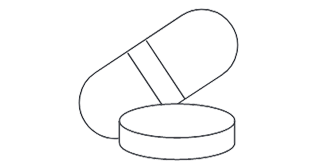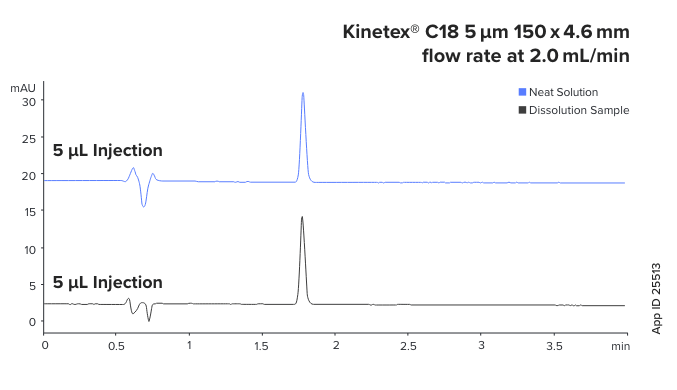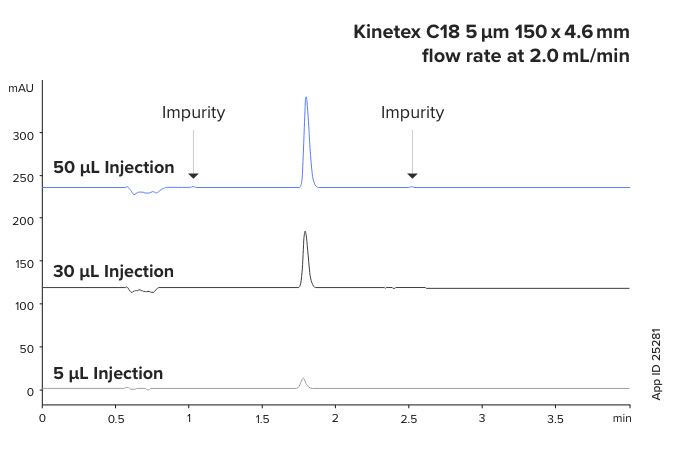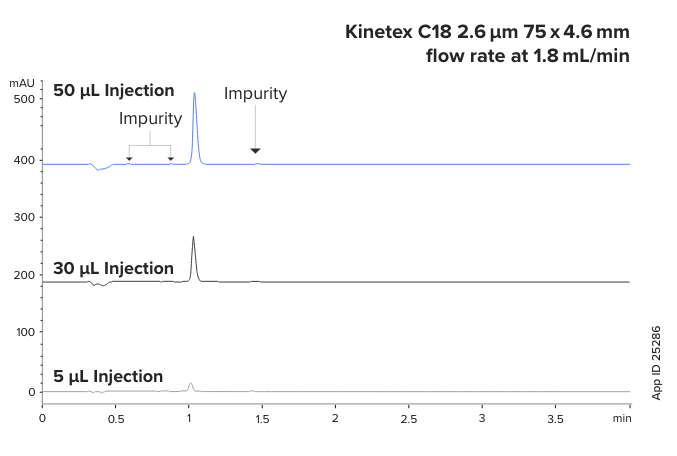Phenex Regenerated Cellulose (RC) Syringe Filters

The Optimal Choice for Aqueous and Mixed-Organic Solutions
Hydrophilic Regenerated Cellulose filter membranes are compatible with a very broad range of aqueous and mixed -organic solutions, making them one of the most universal filter materials used prior to chromatography.

Recommended Use Filtration of a broad range of aqueous and mixed-organic solutions and broadly recommended as an excellent general purpose/high-performance sample filter for most applications |
RC (Regenerated Cellulose)
| For Aqueous and Mixed Organic Solutions |
|---|
| A broad range of aqueous and mixed-organic solutions |
| Fast-flow and ultra-low protein and non-specific binding characteristics |
| Broadly recommended as an excellent general purpose/high-performance sample filter for most applications |
Phenex-RC
RC is Best Recommended for the Clinical / Toxicology Industry
Clinical / Toxicology
Removal of particulate matter to sub-micron levels is critical before any clinical sample is injected into an LC, GC or mass spectrometer. At every stage in toxicology, samples should be filtered, preferably with a rapid and simple sample preparation method to reduce downtime in the fast paced environment. Phenex is designed for higher flow rates and throughputs than those of competing products.
Recommended Filter: RC
First Alternative: PES

RC is a Good First Alternative for the Environmental, Pharmaceutical / Biotech, and Food & Beverage Industries
Environmental
Water, wastewater, soil and sludge, and pollution control samples are especially challenging. No matter the sample type, Phenex offers filtration products to meet your demanding requirements.
Recommended Filter: GF/NY
First Alternative: RC

Pharmaceutical / Biotech
At every stage of the drug discovery process target compounds must be isolated, purified, and prepared prior to testing. Sample complexity in DMPK work can be even more challenging. Difficult samples such as serum, urine, and other physiological fluids are easily filtered and clarified using Phenex syringe filters.
Biological Samples Recommended Filter: PES
First Alternative: RC

Food and Beverage
Food safety is more important than ever and lower detection limits are making analysis even more challenging. Accurate and reliable testing is critical and Phenex filters are routinely used in preparation for analysis of pesticides, herbicides, fungicides, flavors, and fragrances. For samples with large amounts of particulate and/or large fibrous matter, use a glass fiber prefilter.
Recommended Filter: GF/NY
First Alternative: RC

| Application / Sample* | Recommended Filter** | First Alternative |
|---|---|---|
| General GC and LC | RC | PTFE |
| Aggressive or Pure Organic Solvents | PTFE | RC |
| High Particulate Loads | GF/NY | GF + RC |
| Dissolution Testing | GF/NY | RC |
| Ion Chromatography | RC | PES |
| Trace Metals (ICP-MS, AAS) | RC | PES |
| Capillary Electrophoresis (CE) | RC | PES |
* Removal of high particulate matter with a glass fiber prefilter is critical before any drug, tox, or dirty environmental sample is filtered to ensure the highest syringe filter membrane performance.
** For high load and particulate-laden samples you may consider placing a Glass Fiber (GF) prefilter, either integrated with the membrane as one unit (Phenex- GF/NY or -GF/CA) or in series with the membrane syringe filter of your choice. Generally, 0.45 μm porosity filters are used to remove particulates from samples and mobile phase solutions. For sterile-filtration, a 0.20 μm porosity filter can be used.
Ibuprofen Tablet USP Dissolution: A Rapid HPLC Alternative to the Traditional UV Method
The dissolution sample was prepared based on the USP monograph for Ibuprofen tablets. 600 mg Ibuprofen tablets were dissolved in the pH 7.2 phosphate buffer medium. To prepare the dissolution medium, 6.89 g of sodium phosphate monobasic monohydrate (NaH2PO4 M.W. 137.99) was added to 800 mL of water, then adjusted to pH 7.2 with 50 % NaOH, and brought to 1000 mL in a volumetric flask.
Apparatus: basket, 50 RPM, 900 mL
Time points: a single time point was taken at 60 min
The sample was filtered through a Phenex™ 0.45 µm RC membrane syringe filter (P/N for Syringe filter: AF0-2103-52, and P/N for
Disposable syringes plastic: AS0-8409)
Standard solution: 50 µg/mL in medium
Representative chromatograms of neat solution vs. dissolution sample

Representative chromatograms of the column loading capacity test

Representative chromatograms of the column loading capacity test













